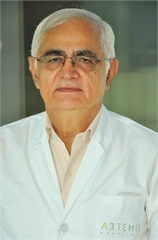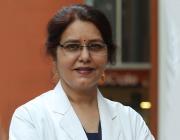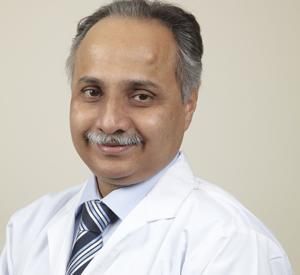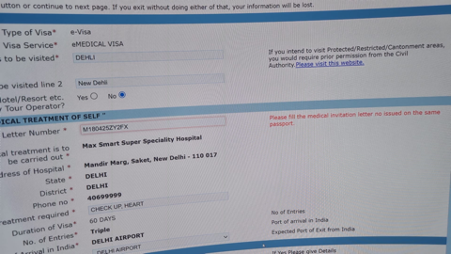About The Doctor
Prof. T K Thusoo has a long surgical experience of more than 40 years. He has been an examiner in surgery for University of Delhi & other Indian Universities for both under graduate & post graduate courses. He has more than 40 publications both in National & International Journals. He has special interest in Endocrine Surgery, particularly Thyroid & Parathyroid Surgery & also Breast Surgery, apart from having rich experience in GI & Laparoscopic Surgery being on the faculty of prestigious teaching hospital viz. Maulana Azad Medical College & Associated Lok Nayak & G B Pant Hospitals, New Delhi.
Specialization
- General & MI Surgery
Awards
- Gold Medals in Anatomy, Pathology & Pharmacology and First Prize & Silver Medal in Physiology, 2nd Prize in Gynae. & Obstetrics in MBBS
- Best Article in Indian Journal Of Surgery for Yr. 1978
WHO Fellowship for Laparoscopic Surgery in various Institutions in USA from Sept. 93 to March,1994 - Dr. T J Agarwal Memorial Oration for the year 1998 of Delhi State Chapter of Association of Surgeons of India
Delhi State Award for Service Doctors for Yr.1999- 2000 - Distinguished Alumni Award of Maulana Azad Medical College for the Yr. 2002
- Chairman’s Award of Max Health Care for Yr. 2004-05
- Silver Jubilee Oration of Surgery Update 2009, Annual National CME programme of Dept. Of Surgery, M A M College, New Delhi
Frequently Asked Questions About Oncology
How many kinds of tumours are there?
There are two kinds of tumour – Malignant & Benign. A benign tumour is more common, and is generally harmless. It doesn’t spread to other parts of body. A malignant tumour on the other hand, never stops growing unless until treated and can spread to other parts of the body. cancer is the name given to a malignant growth.
Is cancer contagious or infectious?
No. Since cancer is not caused by a germ, it is not “catching”, and cannot be transmitted from one person to another.
How does Cancer spread?
A malignant tumor is made up of cancer cells. When it first develops, this malignant tumor may be confined to its original site. This is known as a cancer in situ (or carcinoma in situ). If these cells are not treated, they may spread beyond their normal boundaries and into surrounding tissues, becoming invasive cancer. Some benign tumors are precancerous and may progress to cancer if left untreated. Other benign tumors do not develop into cancer. For a cancer to grow bigger than the head of a pin, it must grow its own blood vessels. This is called angiogenesis. Sometimes cells move away from the original (primary) cancer, either by the local tissue fluid channels (lymphatics) or in the blood stream, and invade other organs. When these cells reach a new site, they may continue to grow and form another tumor at that site. This is called a secondary cancer or metastasis.
What are the warning signs of Cancer?
The chances of curing cancer increase with early detection. The Indian Cancer Society and other organizations recommend paying attention to seven warning signs of cancer:
– Changes in bowel or bladder habits
– Unusual bleeding or discharge
– A sore that does not heal
– Indigestion of difficulty swallowing
– A nagging cough or hoarseness
– A thickening or lump in the breast or elsewhere
– An obvious change in wart or mole
A physician can detect cancer by taking medical history, performing routine check ups, cancer screening tests, imaging techniques and tissue biopsy.
What is Chemotherapy used for?
Chemotherapy is given for the following reasons:
– Shrink tumors
– Slow cancer’s growth
– Keep the cancer from spreading
– Relieve diseases related symptoms
– Prolong survival
Chemotherapy is used to treat many different types of cancer. The type, location, and stage of the cancer as well as your general health will largely determine if chemotherapy is appropriate and which agents ought to be used.
What are the benefits of taking treatment through MMT instead of directly from the doctor?
We provide services from top doctors across top hospitals to ensure that you get the best treatment.











